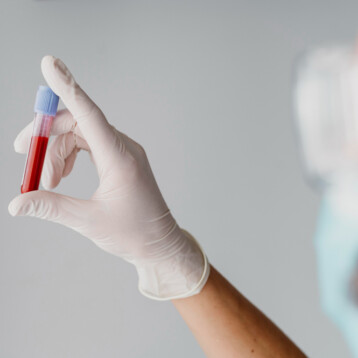Swiss researchers developed a new silicon chip that can help identify breast cancer patients with high risk of metastasis with exceptionally high level of precision compared to existing techniques. The added bonus – results took several minutes rather than hours or days. Other forms of cancer could be next in line.
Scientists from the Swiss Federal Institute of Technology in Lausanne (EPFL) created a new type of fast and extremely accurate microfluidic chip that can identify the exact type of breast cancer a patient might have. This type of diagnostic tool is important in order to prescribe proper treatment critical to increasing the chances of recovery.
–
–
In the United States alone over 210,000 women a year are diagnosed with breast cancer and over 40,000 die from the disease according to the CDC. Diagnosing breast cancer accurately in time can save the lives of thousands of patients.
–
–
Breast cancer patients with abnormal amount of the protein HER2 on the surface of their cancer cells have higher risk of metastasis. EPFL researchers collaborated with scientists from the Institute of Pathology at the Lausanne University Hospital (CHUV) to develop a system that could identify these proteins in diseased tissues
helping healthcare providers to prescribe customized treatment in time.
–
helping healthcare providers to prescribe customized treatment in time.
–
Contrarily to existing methods, the new chip developed by the EPFL team can inexpensively diagnose patients in a few minutes rather than hours or more using conventional methods used today. This is achieved by using a silicon and glass chip with tiny channels no more than 100 microns in diameter each. This system is used to detect antibodies attach to the HER2 proteins of the cancerous tissue using fluorescence. The cells are collected during surgery or biopsy of a suspected cancer patient, and placed within the chip so they are completely absorbed by the fluids. The sample tissue is then covered with a serum containing antibodies and using fluorescence, it is then possible to precisely detect the amount of proteins in the sample.
–
–
Acording to Martin Gijs, Director of the Laboratory of Microsystems in EPFL who was part of the research: “Currently, tissue samples must be bathed for a long time in a solution full of antibodies, so that each part of the tissue is thoroughly exposed. But with this long period of immersion, it can happen that the antibodies disproportionately cling to targeted proteins or places where the proteins are not present, which gives ambiguous results. Frequently, complex and expensive genetic analysis (ISH) must then be additionally carried out. With the new chip, it becomes possible to irrigate the entire sample evenly and for a set time. By completely controlling the flow of fluids, we can set the device to get exactly the irrigation time required to ensure that attachments between antibodies and targeted proteins are proportional”.
–
–
The results from testing conducted using the new chip so far are promising. Out of 76 tumor samples, traditional testing methods of analysis gave ambiguous results for 27 of them. With the new chip, only three results remained ambiguous. The rest of the tested samples proved 100% accurate, and each analysis took less than five minutes altogether.
–
–
The researchers also mentioned that the chip can potentially be adapted to test other biomarkers involving different types of cancers and the team is looking for funding in order to commercialize the system and continue the development.
–
–
More information can be found on the EPFL website.











